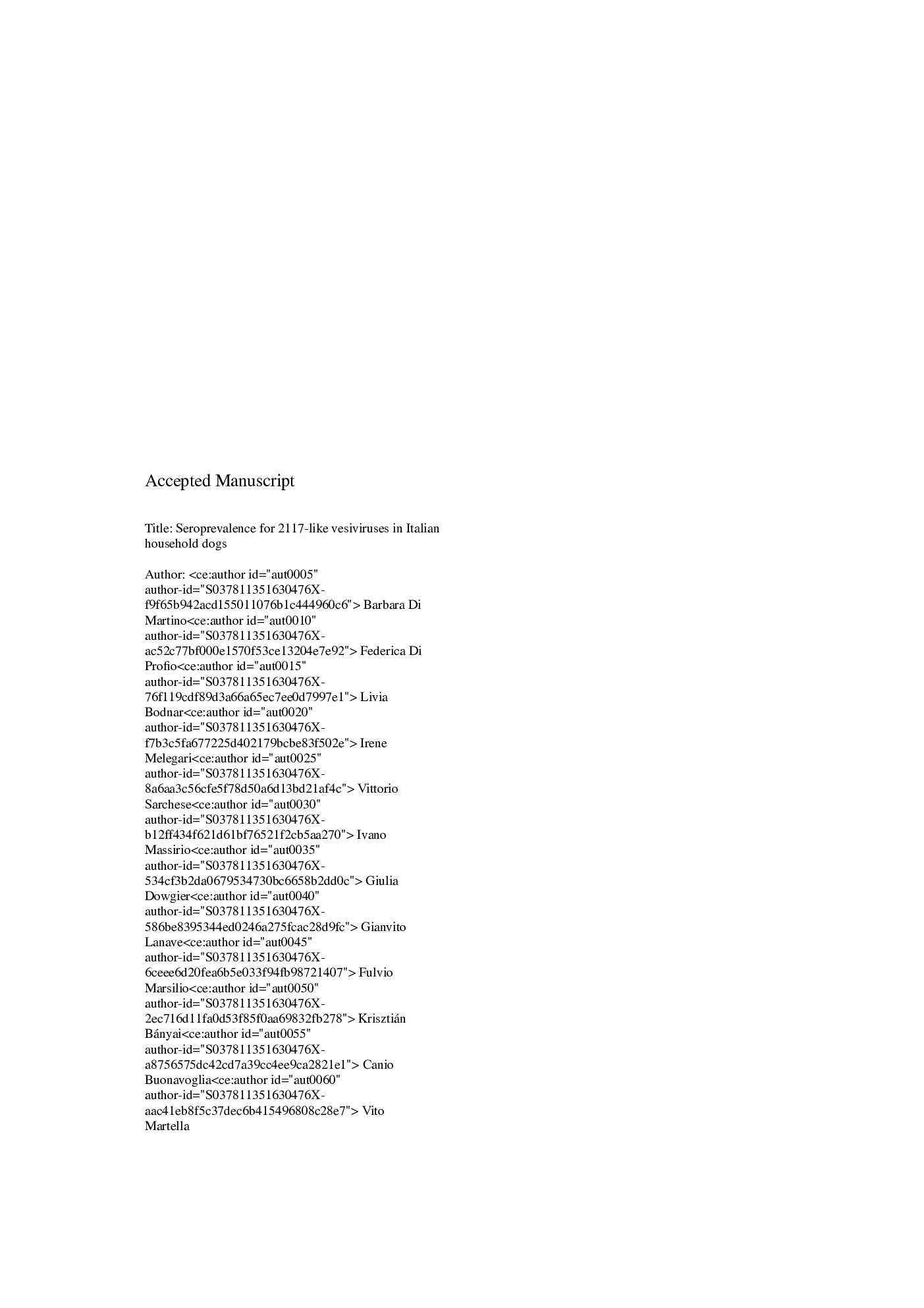| Article ID | Journal | Published Year | Pages | File Type |
|---|---|---|---|---|
| 5545140 | Veterinary Microbiology | 2017 | 15 Pages |
Abstract
In 2003, a novel calicivirus, the vesivirus (VeV) strain 2117, was identified incidentally as a contaminant in Chinese Hamster Ovary (CHO) cell cultures by a German pharmaceutical company. Similar contaminations have been documented in three additional episodes, in bio-reactors used for production of recombinant drugs. More, recently 2117-like VeVs have also been identified at high prevalence in the stools from asymptomatic kennel dogs and only sporadically in diarrhoeic and healthy household dogs. In this study, antibodies for 2117-like viruses were detected in 21.5% of sera from household dogs, indicating that they are common viruses in the canine host.
Related Topics
Life Sciences
Agricultural and Biological Sciences
Animal Science and Zoology
Authors
Barbara Di Martino, Federica Di Profio, Livia Bodnar, Irene Melegari, Vittorio Sarchese, Ivano Massirio, Giulia Dowgier, Gianvito Lanave, Fulvio Marsilio, Krisztián Bányai, Canio Buonavoglia, Vito Martella,
